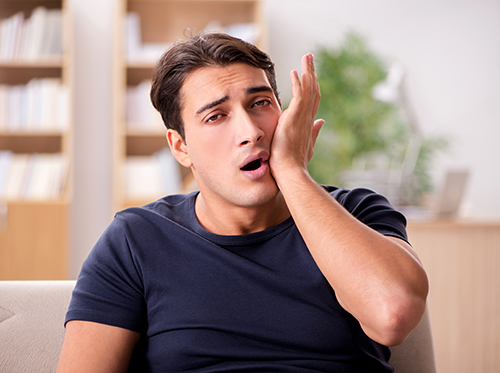Common Wisdom Teeth Problems
May 30th, 2018

Have you ever wondered why people have wisdom teeth? These are a third set of molars that come in behind the rest of all your other teeth, usually during early adulthood. Scientists and anthropologists believe that wisdom teeth are a result of evolution, because our ancestors needed these extra teeth to handle their primitive diets. Nowadays, the average diet consists of fewer hard-to-chew foods, which renders wisdom teeth largely superfluous.
Most people begin to experience wisdom teeth pain between the ages of 17 and 25. Our ancestors nicknamed them wisdom teeth because they appeared at a time in life when we supposedly grew wiser.
If you’ve already had your wisdom teeth removed, you know how painful they can become if they aren’t taken care of promptly. If not, watch out for discomfort in the back of your mouth and let Dr. Henagan know right away if you think your wisdom teeth are coming in.
In some cases, people do not experience any problems or discomfort with their wisdom teeth. These patients may keep their wisdom teeth intact if there’s enough room in their jaw to fit them properly. But this is generally not the case, so wisdom teeth can cause several concerns, depending on which direction they grow.
Common problems include:
- Damage to surrounding teeth due to the pressure from the emerging teeth
- Infection that causes the surrounding gums to swell and become painful
- Tooth decay due to the lack of room to clean the teeth properly
- Impaction (when the tooth is unable to break through the skin)
- A cyst that may damage the jaw, the surrounding teeth, and nerves
If you haven’t had your wisdom teeth removed yet, there are many symptoms to watch out for when they begin to grow. Symptoms may include:
- Pain or stiffness in the jaw
- Tooth irritation
- Swelling of gum tissue
- Crowding of other teeth
- Spread of tooth decay or gum disease on nearby teeth
If you’ve noticed these symptoms, schedule an appointment at our New Iberia, LA office. Don’t forget: This is a common procedure that will take some time to recover from. Allow your mouth to heal, and then you’ll be able to get back to a normal routine quickly and be free from pain!




